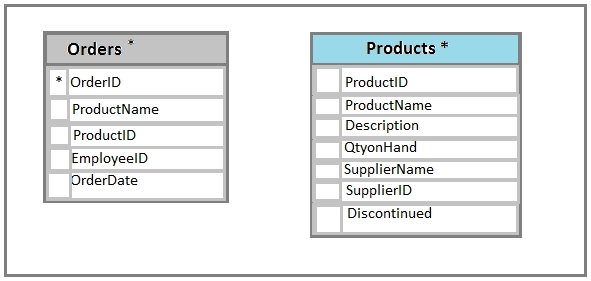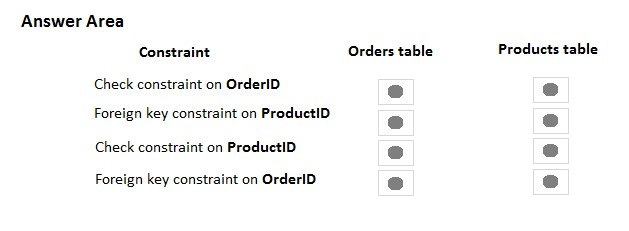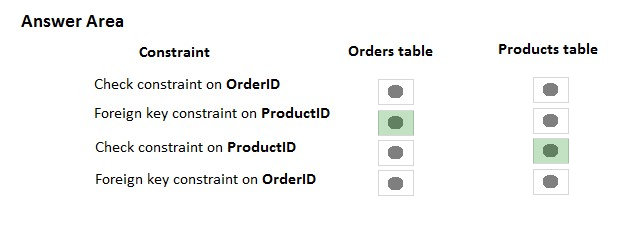

HOTSPOT -
Note: This question is part of a series of questions that use the same scenario. For your convenience, the scenario is repeated in each question. Each question presents a different goal and answer choices, but the text of the scenario is exactly the same in each question in this series.
You have a database named Sales that contains the following database tables: Customer, Order, and Products. The Products table and the Order table are shown in the following diagram.
The customer table includes a column that stores the data for the last order that the customer placed.
You plan to create a table named Leads. The Leads table is expected to contain approximately 20,000 records. Storage requirements for the Leads table must be minimized.
You need to modify the database design to meet the following requirements:
✑ Rows in the Orders table must always have a valid value for the ProductID column.
✑ Rows in the Products table must not be deleted if they arepart of any rows in the Orders table.
✑ All rows in both tables must be unique.
In the table below, identify the constraint that must be configured for each table.
NOTE: Make only one selection in each column.
Hot Area:

moehijawe
Highly Voted 5 years, 4 months agoNickMane
5 years, 4 months agoNickname17
5 years, 1 month agoAndy7622
Most Recent 4 years, 5 months agoeggzamtaker
4 years, 5 months agokyliek7
4 years, 5 months agokyliek7
4 years, 5 months agogeekeek1
4 years, 6 months agoTheDUdeu
4 years, 7 months agoAmandaW
4 years, 8 months agoKepty
4 years, 8 months agoTatyanaY
4 years, 8 months agoMarcusJB
4 years, 7 months agoOooo
4 years, 8 months agoMosufe
4 years, 10 months agogmu
4 years, 10 months agostm22
4 years, 11 months ago